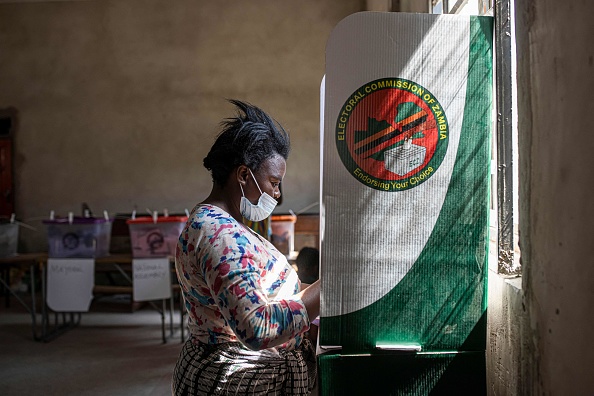Several users from Zambia have taken to Twitter informing the general public that WhatsApp has been restricted in the country amidst ongoing general elections today.
The president and parliamentary elections culminate in a face-off between current President Edgar Lungu and opposition Hakainde Hichilema.
Internet monitoring organization Netblocks further corroborated these reports, adding that multiple internet providers in Zambia had restricted access to the American social messaging platform. Some of these networks include Zambian government-owned Zamtel, Airtel Zambia, Liquid Telecom and MTN.
Just this week, reports circulated that the Zambian government had threatened to shut down the internet if Zambians “failed to use the cyberspace during this year’s election correctly.” The reports say the government intended to go through with its plans from Thursday, the polling day, till Sunday, when vote counts are expected to have ended.
However, the Zambian government, via its Information and Broadcasting Services Permanent Secretary, Amos Malupenga, came out to deny the reports, calling them “malicious.” Nevertheless, he mentioned that the government would not tolerate abuse of the internet and if any mischief occurred, there would be no hesitation to take appropriate measures.
“The government, therefore, expects citizens to use the internet responsibly. But if some people choose to abuse the internet to mislead and misinform, the government will not hesitate to invoke relevant legal provisions to forestall any breakdown of law and order as the country passes through the election period,” Malupenga said.
Zambia isn’t the first African country to witness this during an election as social media restrictions and internet shutdowns are now a recurring theme for most African states.
Countries like Cameroon, Congo, Uganda, Tanzania, Guinea, Togo, Benin, Mali and Mauritania have faced social media restrictions and internet shutdowns during elections. A handful of others like Chad, Nigeria and Ethiopia, on the other hand, have experienced similar restrictions for unrelated events.
Most governments argue that they carry out social media restrictions and internet shutdowns to maintain security during elections; however, it’s glaring to see the process as a means to curb the spread of vital information among voters and the media within and outside the country.
Today’s event shows that despite denying reports about an imminent internet shutdown, the Zambian government is heading in that direction by first cutting off WhatsApp. While writing on the WhatsApp restriction, Netblocks also reported that the Zambian government has proceeded to restrict other social media platforms, including Facebook, Instagram, Messenger and Twitter.
Still, internet users in Zambia are now using VPN services to bypass the restrictions on WhatsApp and these other social media platforms. Yet, it remains to be seen if the government will enforce a full internet shutdown.
